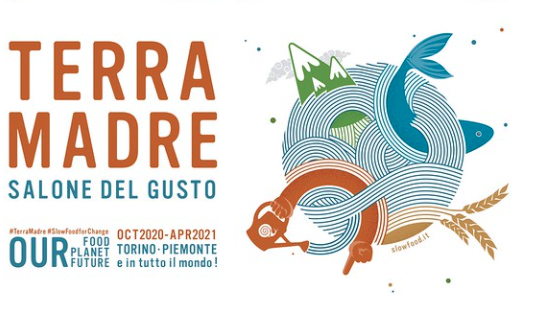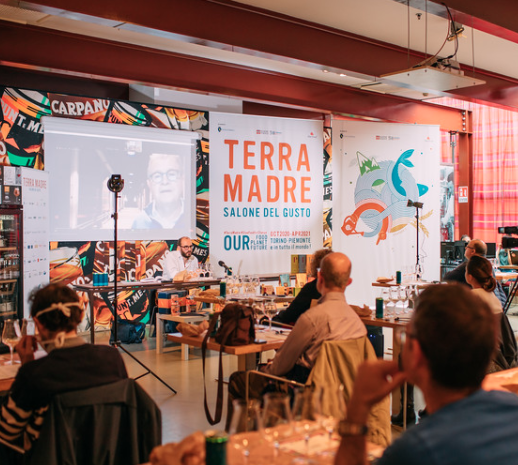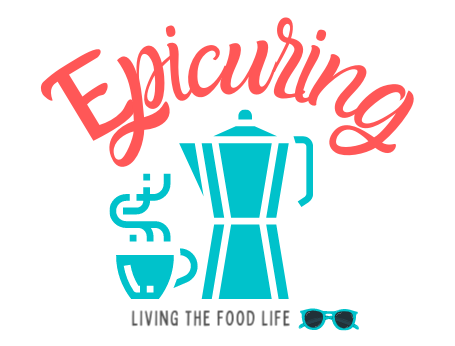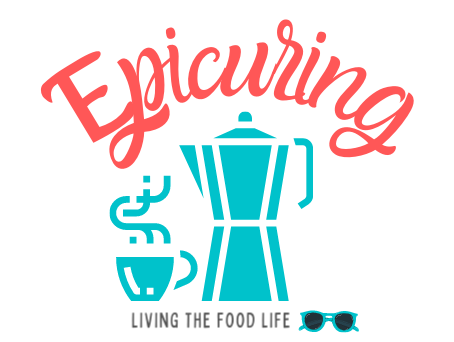
Celebrate 2020 Holidays By Learning About Farming Online – Free Slow Food Events
Terra Madre Salone del Gusto is virtual in 2020.
They have an incredible selection of webinars with farmers and producers from around the world.
In between the Christmas Caper Netflix binges, there are so many interesting things to learn and people to meet—who you can visit in the future!
Terra Madre Salone del Gusto, the most important event dedicated to good, clean and fair food and small-scale agriculture in the world, is organized by Slow Food, the City of Turin and the Region of Piedmont. In 2020, physical and digital events which, in over 160 countries, nurture the debate on how to feed the planet in a sustainable way.
Join in!
- FOOD AND CULTURAL HERITAGE: AN EU POLICY PERSPECTIVE
November 17th, 11:00 a.m. (CEST time)
Streaming from: Bruxelles, Belgium
Over the last 60 years, thousands of varieties of cereals, fruits, vegetables, animal breeds, breads and cheeses have disappeared from our fields and plates.
This forum, organized as part of the European project Food is Culture, will consist of a debate on the connections between food, agricultural and cultural policies, it will also highlight how food is an invaluable cultural heritage. The “Food and Cultural Heritage” policy brief, created as part of the project, will also be presented, which focuses on the need for actions by the EU to protect the intangible heritage linked to food, together with concrete recommendations on how to better integrate agricultural and cultural strategies.
Participants will be invited to explore the online exhibition “What you didn’t know existed. Endangered food from around the world” featuring some of Slow Food’s Ark of Taste products.
Representatives from the European Commission, Europa Nostra, and Slow Food will take part. - TERRA MADRE BRAZIL – OPENING
November 17th, 18:00 p.m. (CEST time)
Streaming from: Salvador, Brazil
Meet Terra Madre Brazil, which happens online between November 17 and 22.
A diversity of virtual activities, such as: round tables, dialogues, taste workshops, educational spaces dedicated to food culture, art installations. Terra Madre Brazil, an online event dedicated to real food, where there will also be discussions and proposals to promote good, clean and fair food. The plurality of family and peasant farmers, the nuances of biodiversity and the Brazilian food culture will be among the protagonists of the event.Free digital event. The event will be transmitted on the Terra Madre Brazil platform: click here to follow it. - MODEL FORESTS OF THE MEDITERRANEAN MODEL FOREST NETWORK: COMMUNITY, PRODUCTS, MANAGEMENT
November 19th, 17:00 p.m. (CEST time)
Streaming from: Bra, Italy
Model Forests is a network of 60 forests around the world. The forests of the Mediterranean are closely tied to the mountains: the Alps, the Apennines, the Atlas Mountains of Morocco, and so on. This forum is a showcase for good practices in community forest management in countries around the Mediterranean from Spain to Croatia and Italy to Algeria. A chance to know more about systems that can support local communities, promote local agricultural products and stem the tide of depopulation in the highlands.
Speakers from Canada, Spain, Turkey, Croatia.The access to the event is free, but must be booked in advance. Reservations can be made here until 12 p.m., November 18th. Once registered, you will receive the link to participate to the event. - HUMANS AND TREES: A PARADOX
November 21st, 10:00 a.m. and 17:00 p.m. (CEST time)
Streaming from: Bra, Italy
Woods and forests are in danger and need to be protected, preserved and managed sustainably. Yet the relationship between humans and trees is paradoxical.
On one hand, the trend of turning vast tracts of land into monoculture production is a massive contributor to deforestation. Burning old-growth forests down releases tons of CO2 into the atmosphere, and the layers of peat that are exposed to sunlight once the trees are cut down also release the CO2 they contain. And on top of this environmental catastrophe, both indigenous peoples and wildlife are losing their homes, accelerating the decline of global biodiversity. On the other, wild vegetation is progressively invading areas that people once managed and cultivated. This invasion is a direct consequence of the depopulation of the mountains and other marginalized areas, resulting in hydrogeological instability and the loss of grazing lands, as well as knowledge, traditions and products. Adopting a sustainable approach to protecting and managing our forests is an urgent imperative, one that can be met by restoring damaged forests, promoting traditional wood-processing systems, encouraging people to move back to the mountains, and recovering traditional agricultural landscapes, pastures and crops, all of which can be of great value to tourism.
The access to the event is free, but must be booked in advance. You can register here for the 10:00 a.m. session and here for the 17:00 p.m. session. - WE FEED THE PLANET PHILIPPINES
November 21st, 3:00 a.m. (CEST time) and November 22nd, 3:00 a.m. (CEST time)
Streaming from: Makati city, Philippines
We Feed the Planet Philippines will be a two day virtual training that will focus on youth involvement in food and community revitalization, new sustainable farming technologies and traditional farming, fighting food waste, promotion of heritage food and sustainable tourism incorporating virtual Eat-ins.
We Feed the Planet Philippines aims to bring together a network of young farmers, producers and food professionals from Philippines and if possible neighboring countries (Japan and Korea) by organize a two day regional agro-food, culinary heritage virtual learning session dedicated to the Filipino youth. The event will help create a vibrant, creative and open-minded global food community of youth, to facilitate exchanges from/for agri-food innovators with other like-minded organizations/networks.
Free event. The participation inside the zoom video conference will be live streamed in the page of SFYN PH. - FOREST PEOPLE’S FOOD SYSTEMS AND THE THREAT OF LAND GRABBING
November 21st, 15:00 p.m. (CEST time)
Streaming from: Bra, Italy
A forum to raise public awareness of the consequences that the “conservationist” approach to forests has for the people that lived there and to show how indigenous people have lived in harmony with nature, protecting it effectively.
There are lots of examples to focus on: the Ogiek and Senwger peoples of Kenya; the Benet people in Uganda; the Melayu and Dayak peoples of Indonesia; the Juruna of Brazil; the Chinantla, Totonacos and Nahua peoples of Mexico. Representatives of these indigenous peoples dialog with experts from around the world who work in the field.
The event will be available in English and Portuguese.
The access is free, but must be booked in advance. You can register here. - CO-RESPONSIBILITY OF ACTORS IN THE VALUE CHAIN OF SMALL-SCALE FISHERIES IN THE CARIBBEANNovember 23rd, 15:00 p.m. (CEST time)
Streaming from: Bra, Italy
This virtual meeting is a conversation between artisanal fishers and consumers to share experiences regarding the problems of intermediation in the value chain faced by fishing communities and organizations in the caribbean.What are the effects of intermediation on local economies, and on the conservation of ecosystems? How does it affect consumption? What are the impacts of this intermediation on food sovereignty? What are the responsibilities of each actor in the value chain?This forum is made possibly with the contribution of the European Union, Slow Fish Caribe project.The access to the event is free, but must be booked in advance. Reservations can be made here. Once registered, you will receive the link to participate to the event. - MILPA, THREE SISTERS AND FOOD FOREST: ANCESTRAL INTERCROPPING SYSTEMS
November 23rd, 17:00 p.m. (CEST time)
Streaming from: Bra, Italy
Intercropping systems are an expression of the perfect balance that can naturally be created between plants, developing synergies and removing pathogens.
There are countless combinations that can be exploited and that in ancient times were widely used, as no external input was available. Furthermore, they often represented a key element for local communities to ensure their food security, resulting in an effective way not only for a secure supply of fresh food, but also for the reproduction of seeds in situ.With the arrival of intensive agriculture, the ancestral systems have disappeared because they are not suitable for a type of mechanized agriculture. However, some have managed to survive thanks to the work of the indigenous communities who have continued to transmit this knowledge. In this forum we take a trip to get to know them starting from Mexico, specifically Chiapas, where we find the milpa system which is based on associations between beans, corn and pumpkins. The same model can be found several kilometers away, in South Africa, known by the name of Three Sisters. Proceeding north, we find the Food Forest system, where associating different types of crops, together with fruit trees and wild plants, creates balance.
Speakers hereThe access to the event is free, but must be booked in advance. You can register here. - THE URBAN FOOD FOREST REVOLUTION
November 24th, 17:00 p.m. (CEST time)
Streaming from: Bra, Italy
Urban forests are a source of food. They are home to fruit trees, shrubs, and vegetable gardens. They are generally located in run-down areas and represent the regeneration of the urban landscape and society.
They improve the air quality and even the weather in cities, producing fruit, vegetables and herbs that can be used by the whole community. Indeed, the people taking care of these forests through community management practices are often inspired by the principles of permaculture. The number of urban forests is on the increase around the world. They may be thought of as educational areas, an innovative model that is strengthening the relationship between urban and rural areas, to the benefit of climate and the livability of cities.
The access to the event is free, but must be booked in advance. You can register here for the 17:00 p.m. session. - THE COMMON AGRICULTURAL POLICY: KEEPING AMBITION HIGH IN EUROPE
November 24th, 10:30 a.m. (CEST time)
Streaming from: Bruxelles, Belgium
At this moment, European Union countries are designing their national strategy plans for the Common Agricultural Policy. Now is the time to push for agroecology.
The EU Commission and Member States are discussing the national strategic plans on the Common Agricultural Policy: will these plans meet the environmental and social ambitions of the EU Green Deal? For Slow Food, agroecology will be key to making the deeply needed transition to sustainable food systems in Europe. An exchange will take place between representatives of the European Commission, the Ministries of Agriculture of Germany and Italy, an expert from IDDRI, a think tank on sustainable development, and Slow Food farmers.
The CAP accounts for around 35% of the EU’s budget and has impacts way beyond agriculture. It shapes the way we eat and impacts our health and the health of our planet. It is fundamental that public money supports food that is good for those who eat it, for those who grow it & for the planet. - TERRA MADRE OLIVE: STORIES OF PEOPLES AND LANDSCAPE. WHAT FUTURE?
November 26th, 18:00 p.m. (CEST time)
Streaming from: Bra, Italy
On the occasion of the international olive day proclaimed by UNESCO, the Slow Food network is organising a conference dedicated to the role of olive growing in the Mediterranean landscape. An immense olive grove covering millions of hectares has been one of the distinctive features of the mediterranean agricultural landscape for centuries. The merit of this extraordinary diffusion goes to the tireless work of generations of farmers who have been able to cultivate the olive tree in these territories. Linked to the olive tree and oil, an economy made up of complex relationships between olive growers, oil mills and merchants has developed, capable of “marking” the territory, determining customs and behaviour, and building through the centuries a civilization of the olive tree that has remained almost unchanged to the present day.Speakers here.You can participate to the conference by following the live streaming on this platform. - RICE: A FOOD THAT GROWS IN WATER
November 27th, 9:00 a.m. (CEST time) and 18:30 p.m. (CEST time)
Streaming from: Bra, Italy
Rice is the staple food for half of the world’s population. It is grown in nearly every country and is the most popular grain on the planet. The production of rice is also a critical aspect for the health of the planet, given the massive use of pesticides employed to grow it. What impacts does intensive rice farming have? Can we grow rice sustainably? What good practices can make rice farming more sustainable?
The access to the event is free, but must be booked in advance. You can register here for the 9:00 a.m. session and here for the 18:30 p.m. session. - THE TERRITORY OF THE GREATER CARIBBEAN
November 30th, 16:00 p.m. (CEST time)
Streaming from: Bra, Italy
The territory of the Greater Caribbean: its ecosystem, interrelationships and sustainability of small-scale fisheries.
To speak of the Caribbean territory is to enter a network of ecosystems made up of coral reefs, underwater rivers, mangroves and other tropical forests that sustain its vitality. The territory of the Greater Caribbean has inspired poets, singers and painters who narrate its landscapes and stories to immortalize it in the world’s imagination. Its great biological and cultural diversity is expressed in its gastronomy, its songs and dances that are true patrimonies. However, this great richness of the Caribbean territory is threatened by industrial activities such as agriculture, tourism or large-scale fishing that negatively impact the natural and social life of this territory. We invite you, in this forum, to learn about the interconnected complexity characteristic of the Caribbean and to share stories of resistance and resilience from the words, hands and heart of Caribbean artisanal fishermen.This forum is realized with the contribution of the European Union, Slow Fish Caribe project.
Access to the event is free, but must be booked in advance. Reservations can be made here. - RIVERS CONNECT THE WORLD – SALMON RIVERS
December 6th, 17:00 p.m. (CEST time)
Salmon are magical creatures that uniquely connect ocean and land through their incredible lifecycle.
Salmon are born in cool fresh water streams, migrate through river basins to the oceans where they transform into salt water fish. Upon reaching adulthood, salmon go on an epic trek back up their home watershed to spawn and die. The salmon “run” feeds the entire ecosystem as wildlife and human communities feast on this bountiful seasonal migration. Even in death, the nutrient dense decaying salmon replenish the fertility of the entire river basin. However, human activity has put this species at grave risk. Wild salmon runs throughout the rivers of the Northern Hemisphere have drastically declined or completely disappeared in the past 50 years, except for the pristine rivers that feed Bristol Bay, Alaska. This program will delve into efforts to preserve Bristol Bay and restore wild salmon to the rivers of the world.Access to the event is free, but must be booked in advance. Reservations can be made here until 12 pm, December 5. Once registered, you will receive the link to participate to the event. - OPEN CITIES, INCLUSIVE COMMUNITIES
December 12nd, 9:00 a.m. and 17:00 p.m. (CEST time)
Streaming from: Bra, Italy
Urban areas—and the largest cities in particular—are places defined by extreme social inequality, where poverty and social marginalization exist alongside wealth and power. One of the key measures of poverty is access to food, which isn’t guaranteed to everyone, as covid-19 has shown us more clearly than ever.
How can we set the table of a city so that everyone can enjoy healthy, quality food? What policies and changes do we need to enact in order to make our cities more open, more equal, and more hospitable? What good practices from around the world—from charitable and social canteens to delivery services, shopping donations for those in difficulty, and projects which combine cooking and cultural exchange with migrant communities—can help us create a brighter future for cities? Slow Food Communities from across the world share and compare their experiences.
The access to the event is free, but must be booked in advance. You can register here for the 9:00 a.m. session and here for the 17:00 p.m. session. - AFRO-DESCENDANT IN THE AMERICAS: THE PROTECTION OF TRADITIONS AND FOOD BIODIVERSITY
December 12nd, 15:00 p.m. (CEST time)
Streaming from: Bra, Italy
A series of meetings and forums to listen to these communities, to learn from them about their cultures, their mixed heritages, and their resistance which, over centuries, has allowed them to co-create and protect food biodiversity and flourishing cultures overflowing with pride. Forum with members from Slow Food networks from Brazil, Colombia, Cuba, Ecuador and USA.The access to the event is free, but must be booked in advance. Reservations can be made here until 12 p.m., December 21st. Once registered, you will receive the link to participate to the event. - THE PATH TOWARDS A GOOD, CLEAN AND FAIR FOOD CERTIFICATION
December 15th, 10:00 a.m. and 17.00 p.m. (CEST time)
Streaming from: Bra, Italy
The classic certification systems (geographic indications, fair trade, organic agriculture…) are not suitable for small-scale farming communities: there’s too much paperwork, costs are far too high, and standardized checks are often carried out on paper only. On the other hand, consumers are demanding more guarantees and information from their food labelling.What would the most effective and useful certification for small-scale productions be? How can we certify highly complex systems with specific environmental, social, cultural and even sensory features? The Slow Food proposal is a participatory system. Participatory Guarantee Systems (PGS) have been successfully applied in several areas of the world (in Brazil, for instance), and are based on a bottom-up model, where the main stakeholders of the production chain are also the certifying agents, ranging from producers to consumers. The system is built on are transparence, trust, interdependence and the exchange of skills and knowledge.After a two-year trial of three pilot cases: the red bean from Lucca, Italy, the Ogiek community’s honey in Kenya and the Mixtecan county’s agave in Oaxaca, Mexico, Slow Food presents the results of these participatory certification systems and discusses the next steps to take with our partner organizations (such as IFOAM, IFAD and FAO’s Mountain Partnership).
The access to the event is free, but must be booked in advance. Reservations can be made until 12 p.m., December 12nd. You can register here for the 10:00 a.m. session and here for the 17:00 p.m. session. Once registered, you will receive the link to participate to the event.




